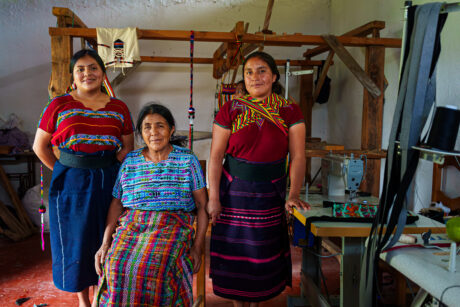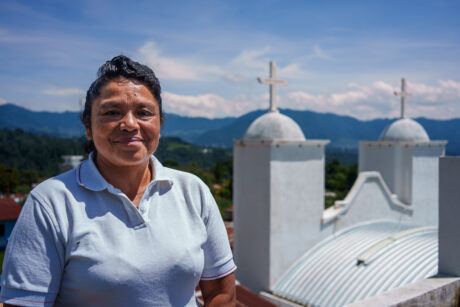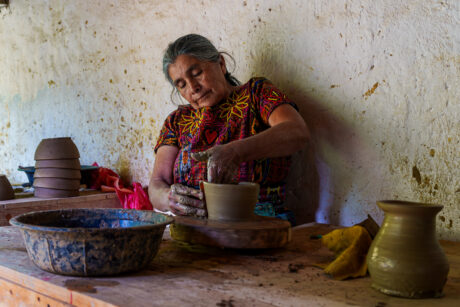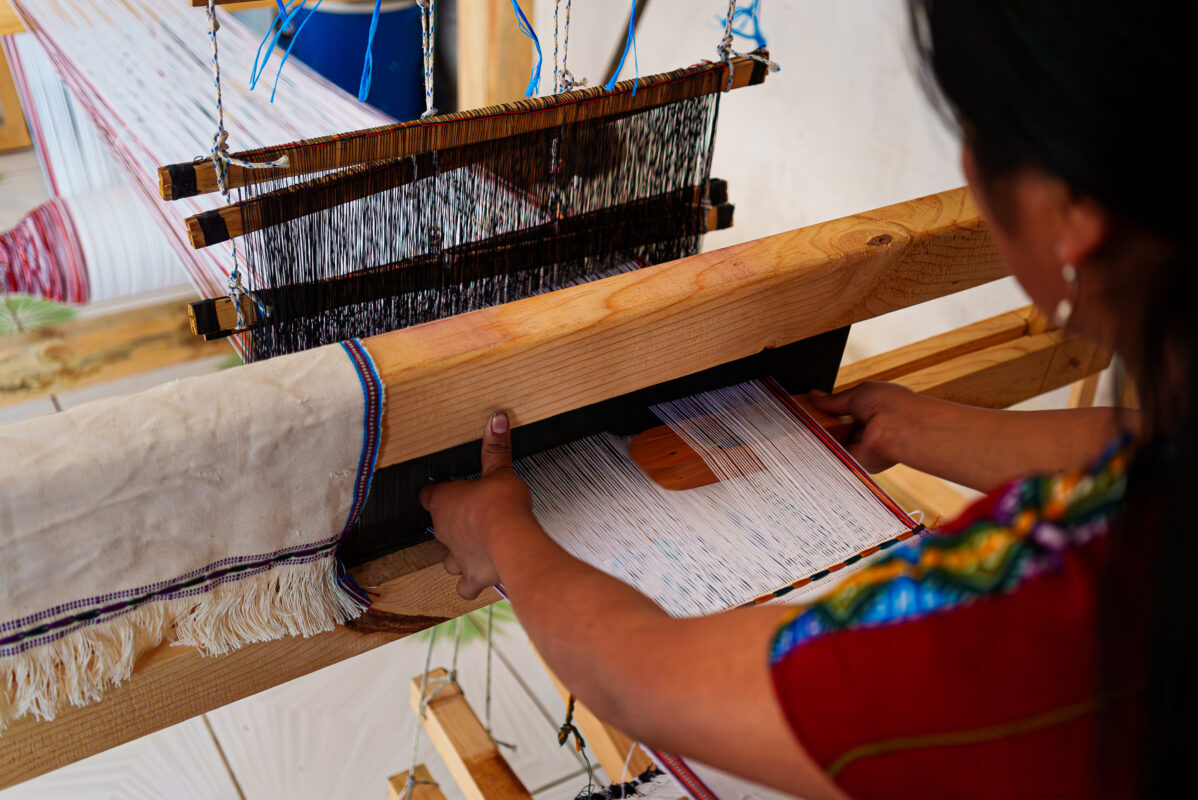Blanca Violeta López Samayoa has learned how to command the attention of a room. She has a lot to say and talks fast. Holding a conflict mediator role as a woman in spaces normally dominated by men in rural Huehuetenango, Guatemala, has not been easy, but it has shaped the way she speaks and carries herself.
“I have been in meetings in which I am the only woman,” says López. “I have had to fight for a space to demonstrate that I have knowledge and skills and that I am a thinking person that has something to contribute,” says López.
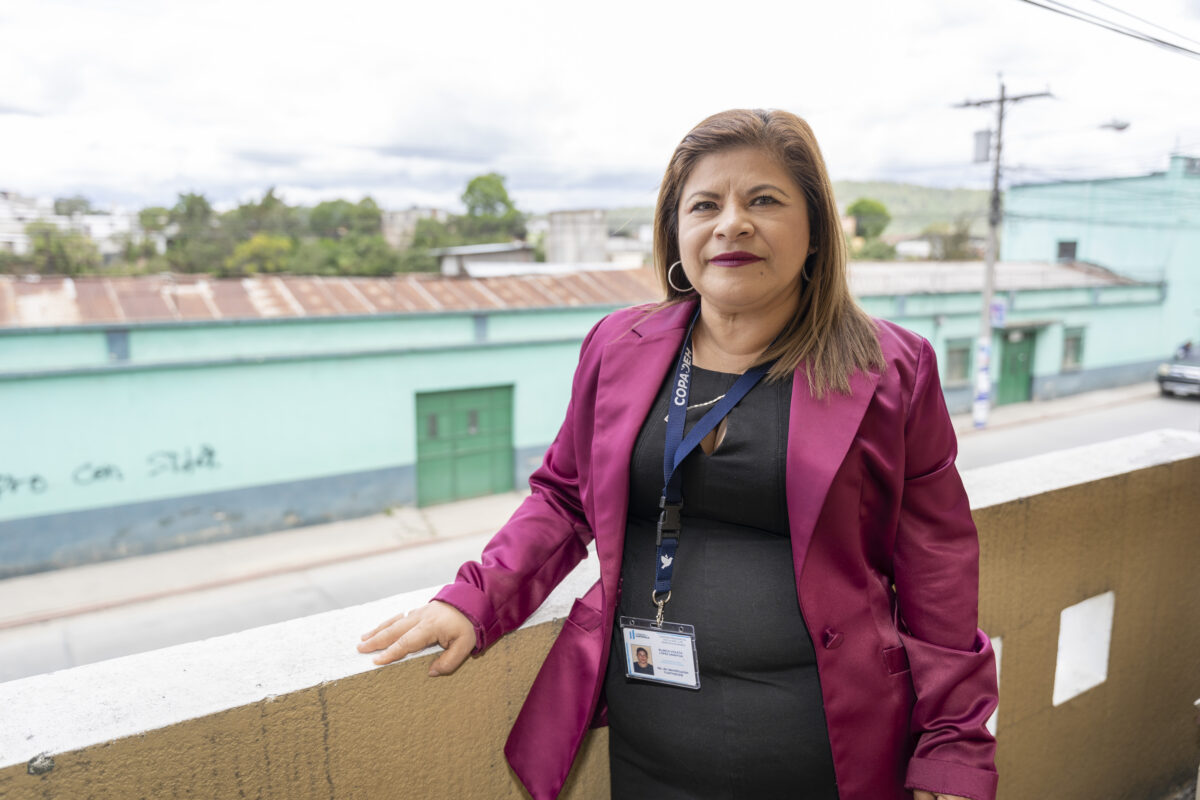
López is a delegate for the Presidential Commission for Peace and Human Rights — COPADEH is the Spanish acronym — covering eight of the most remote northern municipalities of the department of Huehuetenango. Formed in 2020, COPADEH is the government institution responsible for preventing and mitigating conflict at national and departmental levels. As a COPADEH delegate, López and her small team of two colleagues are charged with the prevention and peaceful transformation of social conflict in her designated region.
Much of rural Guatemala lacks access to government services, which can be a source of tension for citizens. The fact that COPADEH is responding to conflict in rural areas such as the eight municipalities within López’s jurisdiction — the majority of which are the farthest and most difficult to access in the entire department — is an important step.
“Social conflict mediation is an alternative method that helps people respond to situations of disagreement, which can lead to conflict, and instead gives them a peaceful resolution avoiding confrontation,” Lopez explains.
Strengthening the COPADEH and delegates like López has been a priority for USAID, who has contributed to building the commission’s capacity to address social conflict with workshops and resources. Through the Peacebuilding Project, USAID and Creative Associates International have given COPADEH the tools to address conflict before it escalates into violence, including a 12-session diploma course on conflict transformation in 2022.
“This diploma course was very important because it helped to refresh my knowledge,” shares López. “Yes, sometimes one accumulates years of learnings but if you do not use them and apply them practically, you collect experiences and eventually forget them.”
Despite having 20 years of work experience in human rights and conflict resolution under her belt, López learned new skills during the diploma course to help her professional growth.
“Through the training, I understood what my role and my position should be within a roundtable discussion because it is not the same to watch as it is to act,” says Lopez. “We worked on the route to address the conflict — a clear route that will get you to a roundtable discussion and the list of actors.”
The training helped Lopez to better structure and document each moment of the process while addressing a conflict to ensure she was taking every factor and every involved party into account. For example, creating a list of actors involved in a conflict seems like a simple process. But López explained how important it is to look at the whole picture of actors, especially the ones on the sidelines that have specific interests and goals. These outside actors can influence the resolution of a conflict, or they can ensure the conflict continues to ferment.
With these new learnings, López is now able to consider all the factors that can make or break a successful negotiation which she recently applied to successfully negotiate a conflict in Santa Cruz Barrillas between the municipal residents and an electrical company that were at odds over an illegal electrical connection and its resulting fines. When the electrical company cut the town’s electricity, tensions flared. López and her colleagues stepped in, holding roundtable discussions that successfully addressed the needs of both the residents and electrical company, negotiating a reduced fine and a five-year plan to pay it.
By helping to transform this conflict, López contributed to the overall wellbeing of families in Santa Cruz Barrillas. She knows that there are many other conflicts in Huehuetenango to resolve, and she has the energy, dedication and attitude to keep at it.
“The driving force that keeps me going in the day to day is serving,” says López. “What fills me up is when I can resolve a conflict, whether it’s big or small, and see the satisfied faces of community members. Believe me, you cannot put a price on that.”
